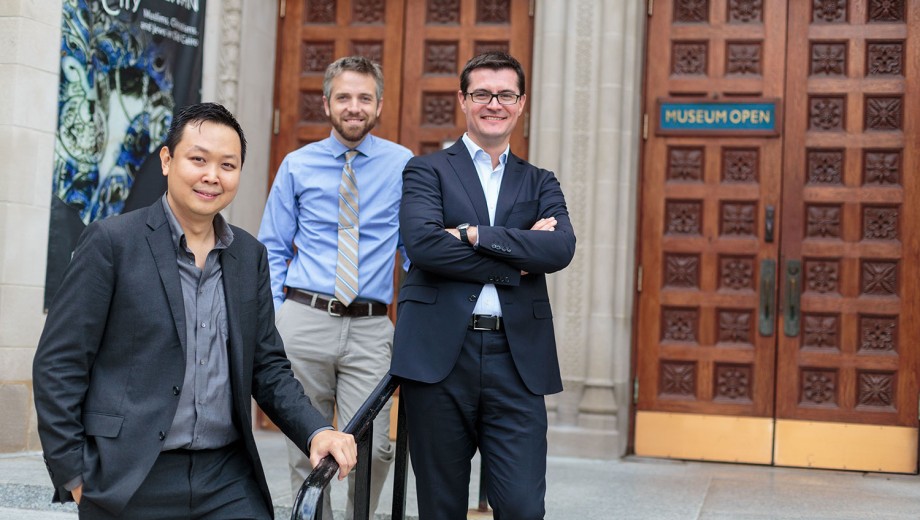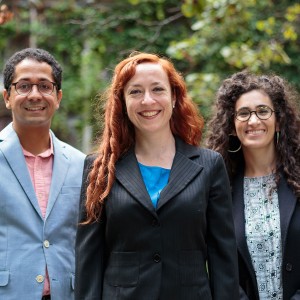Through efforts like the Chicago Assyrian Dictionary, the University of Chicago has long distinguished itself in Assyriology. In hiring three Assyriologists as assistant professors with joint appointments in Near Eastern Languages and Civilizations and the Oriental Institute, search chair Christopher Woods and the committee wanted to ensure that the complementary skills of the new scholars would ensure UChicago’s eminence “for the next decades.”
The committee selected scholars whose work “represents very different intellectual traditions,” according to Woods, associate professor in NELC and the OI. While Susanne Paulus and Hervé Reculeau both study socioeconomic texts—which comprise the majority of all existing cuneiform writings—Paulus focuses on urban institutions, such as temples and palaces; Reculeau studies the countryside and landscapes. John Wee, by contrast, is a specialist in Mesopotamian science and medicine, including astronomical and astrological texts; Woods notes that Wee’s work will “afford all kinds of connections” with other fields, including history of science, classics, and ancient East Asian history.
Beyond Assyriology, archaeologist James Osborne, who uses contemporary spatial-analysis technologies to enhance his analyses of the ancient Mediterranean world, joins both NELC and the OI. Fast-forwarding a few thousand years, Ghenwa Hayek brings NELC her expertise in modern Arabic literature, particularly Lebanese writings that engage with emigration and transnationalism.


